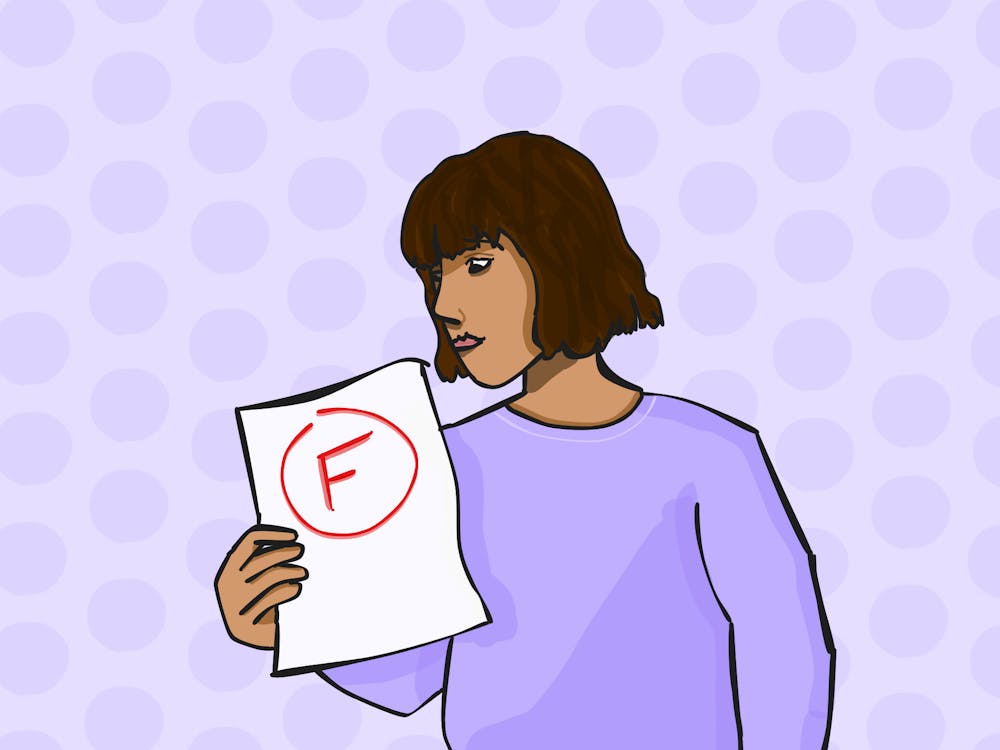When my friends asked me where I was going and I answered, "a CIAG dinner," they gave me a blank stare. It turned out to be a great opportunity.
The Critical Incident Analysis Group held its annual conference in Charlottesville last week and on Monday I attended the conference dinner at Farmington Country Club.
I didn't even really know how to explain CIAG. From the guest list I gathered it would be some sort of conference where crisis psychiatrists, members of the media and others with relevant backgrounds discussed terrorism and other national and international crises.
It turned out to be incredible.
The evening started off in the elegance of Farmington's reception rooms. My fellow reporter struck up a conversation with a guest whom he had met at Sunday's dinner, Neal Dolan, special agent in charge of the South Carolina branch of the U.S. Secret Service, and he was joined by the head of security for British Petroleum. Both gentlemen remarked that, after a grueling day of discussing the media and critical incident, this time of day was their favorite, gesturing to their beers.
Once all of the conference guests had arrived, the magnitude of the event really hit me. Each person in the room held a significant career in politics, the media or academia.
The other reporter and I began to circulate throughout the room. I tried to nonchalantly compare guests' nametags to the list of people I wanted to interview, but many of the media members I had been looking forward to speaking with had already left the conference.
Simon Wessely, professor of epidemiological and liaison psychiatry at King's College in London, agreed to an interview. In addition to his career as a professor, he was also an expert on the July 7 London subway bombing.
Wessely highlighted similarities between New York and London's response to crises -- the city's resiliencies.
In the World Trade Center, "most people knew each other," Wessely said. "Social networks make much more resiliency."
On the other hand, since the bombs struck London's subway system during early morning rush hour, many of the passengers were perfect strangers.
"It's amazing how quickly you can become someone's soul mate," Wessely said. "People organized themselves very quickly. It must have been terrifying to be in a dark tunnel, but there was little panic. Before the emergency systems arrived, the passengers had already organized a first aid system."
Wessely said though there were many similarities, there were also key differences between Sept. 11 in the United States and July 7 in London.
"After July 7 in London, less than one percent of people felt that they needed professional [psychiatric] help," Wessely said.
The percentage for the United States was much higher after Sept. 11.
Wessely said the differences between the effects of the two attacks are mainly because of cultures of the different countries.
"This was not the first time London was attacked," Wessely said. "We have a cultural memory of the city in war. We've seen Hitler and the Luftwaffe."
Wessely also said Prime Minister Tony Blair's constant presence throughout the attacks contributed to the greater sense of calm following the London bombing compared to Sept. 11.
"Blair didn't disappear into a secure location," Wessely said. "If the position is to cope with the trauma, the leader must be seen. Blair was asking people to stay put, so he stayed."
As for the role of a crisis psychiatrist, Wessely said the job does not begin immediately after the event.
"People need transport," Wessely said. "They need a mobile phone, they need to know how to get home. They don't need someone to say, 'How are you feeling?'"
After another turn around the room, I was introduced to Eric Stern, the research director of the Center for Crisis Management Research and Training at the Swedish National Defense College.
He began our interview by telling me he believed Dartmouth, where he spent his undergraduate years, was the prettiest college campus -- until he arrived in Charlottesville for the CIAG conference.
Getting down to business, Stern said his job is to look at the "political science intersection with psychology," particularly related to crisis situations.
Using Sept. 11 as an example, he noted the difficulties in the threat analysis.
"Before 9-11, there were people who saw the threat clearly, but it's hard to get the political system to pay attention," Stern said. "Those people were seen as alarmist when in fact they saw the threat more clearly."
Even if the government had listened more closely to the "alarmists," Stern said problems would still have arisen.
"The tricky thing about threats and warning [the public] is the reaction to the warning," Stern said.
He added that, had there been a warning, unnecessary panic could have ensued.
Even if the government receives information about a future threat, Stern said the questions of how to prepare for the event are complicated.
"It's tricky to prepare on an assessment," Stern said. But even if no crisis develops from the threat, "that doesn't mean it's wrong to prepare. If the consequences are bad enough, you still have to do it."
Studying, analyzing and evaluating these risks daily could seem to many people a pretty depressing profession, but Stern does not let his job interfere with his personal life.
"I'm an optimistic person," Stern said. "I think about it, but I'm not paralyzed by fear."
The last interview I could squeeze in before dinner was with Jim Angle, senior White House correspondent for Fox News Channel. He gave an off-the-record speech during dinner, but graciously agreed to answer a few of my questions before we all sat down.
As a member of the media, Angle's perception of crises differed from that of Wessely and Stern.
"The first thing people want to know is what happened," Angle said. "The government officials are trying to figure out the same thing."
The role of the media in a crisis is to report the same thing -- what happened.
"Initially, it's hard," Angle said. "Early information is almost always sketchy or wrong. The government officials are careful, and people are looking to [the media] to figure out their own reaction. The media plays a very delicate, important role."
At dinner, there were no assigned seats, so the other reporter and I chose a table near the front of the room -- front-row seats for Angle's off-the-record address.
At our dinner table sat the two lawyers, Steve Campbell and Kenneth Melson, assistant U.S. attorney and first assistant, respectively, from the Eastern District of Virginia office that oversaw the prosecution of al-Qaeda conspirator Zacarias Moussaoui. Also present were a member of the FBI and a representative of Fluor Corp., a contractor that supplies armored vehicles to the U.S. military in Iraq, built the Alaskan Pipeline and also U.S. Route 895 in Richmond.
During our appetizer of cream of wild mushroom soup and Caesar salad, the conversation drifted everywhere from the Iraq War to law school to restaurants in Saudi Arabia to college. Just listening to these men speak so knowledgably about such a wide variety of topics was remarkable.
After a pretentiously-named dinner, "Duet of Chicken and Shrimp," and a dessert of pecan pie, Angle spoke on the Bush administration's reaction to terrorist-related events.
At the conclusion of Angle's speech, University CIAG Executive Director Gregory Saathoff, associate professor of research in psychiatric medicine at the University's medical school, thanked the participants. As he thanked Angle for his enlightening speech, he also thanked him for taking the time out of his busy schedule to speak with the two student reporters from The Cavalier Daily.
That was the icing on the cake of an amazing night -- an experience that will probably never happen again and one which I will definitely never forget.






